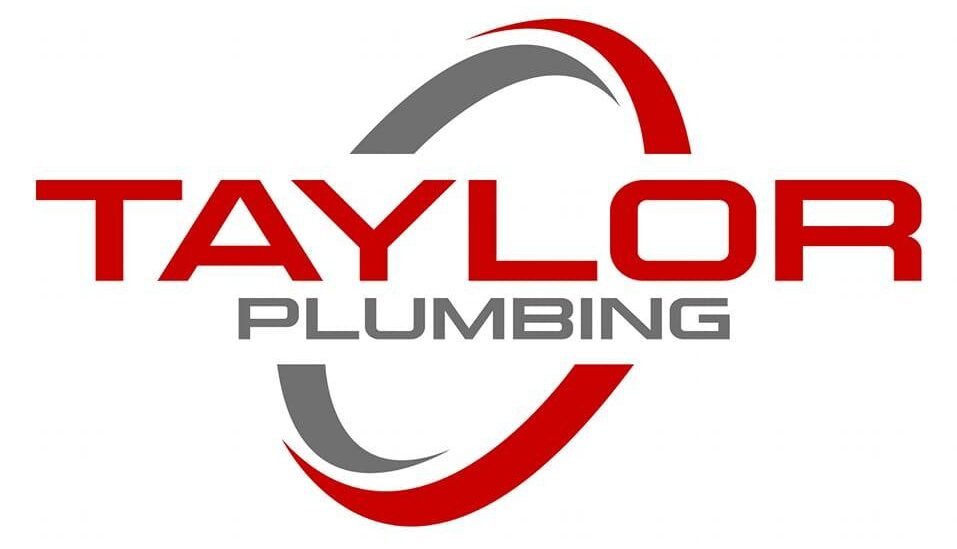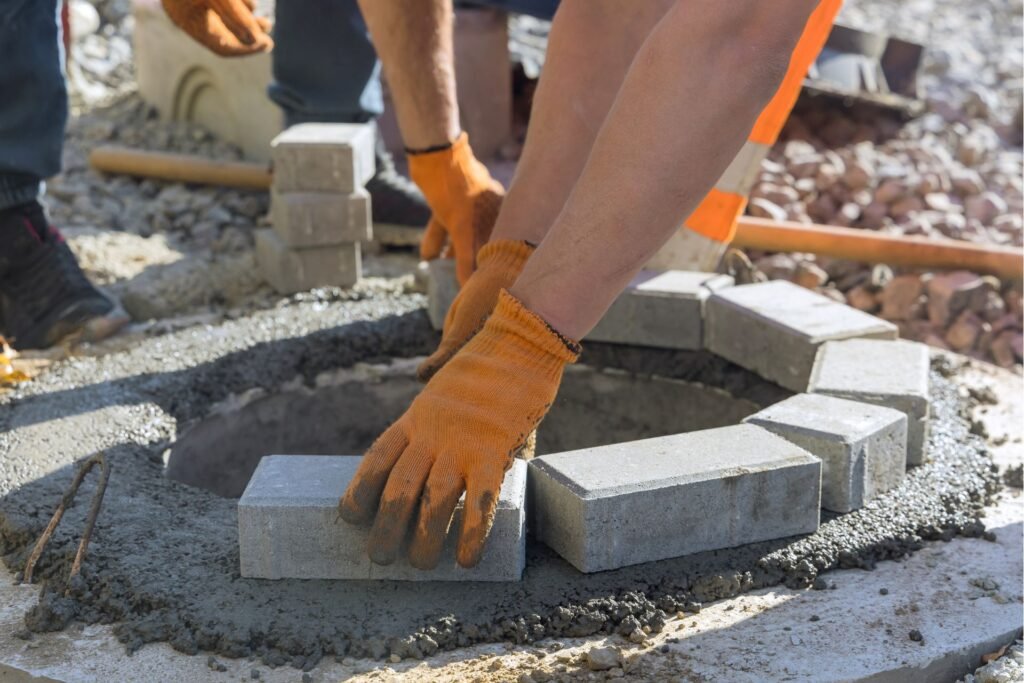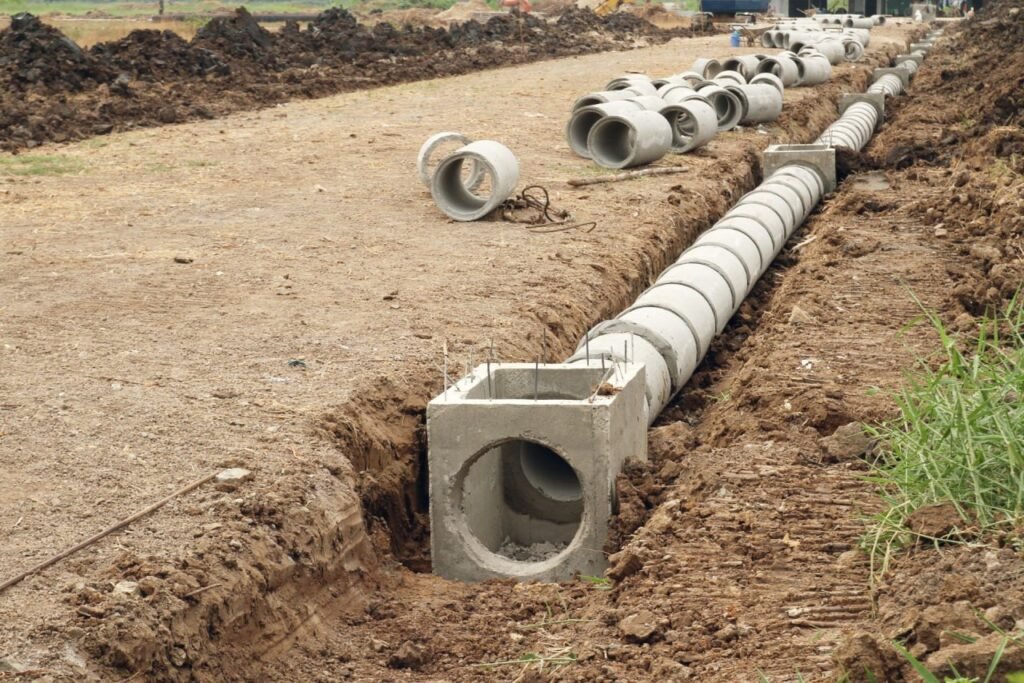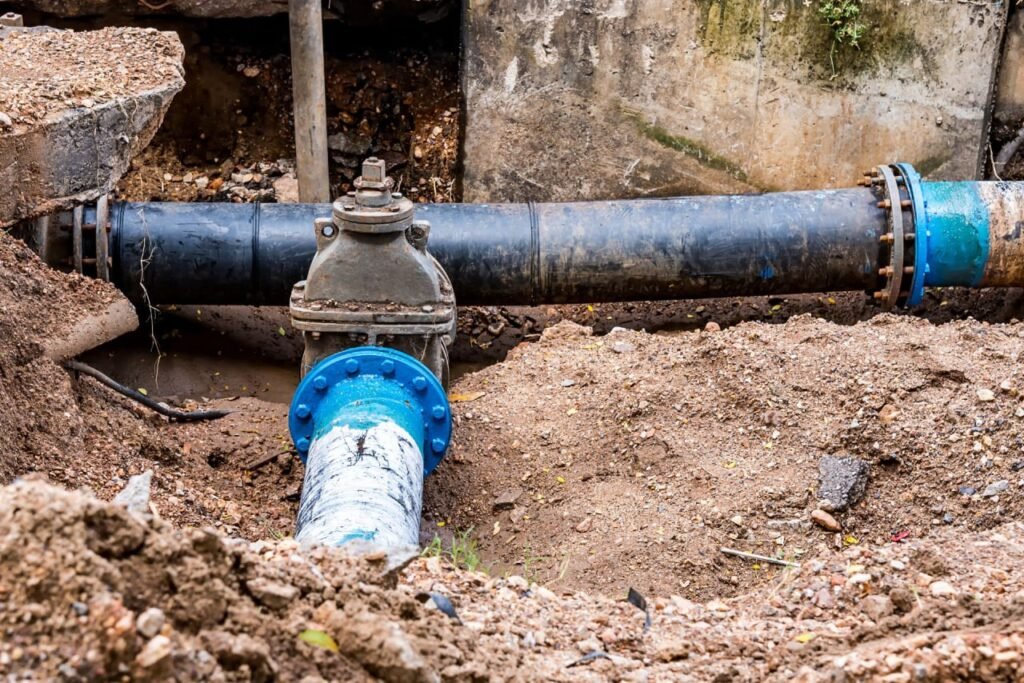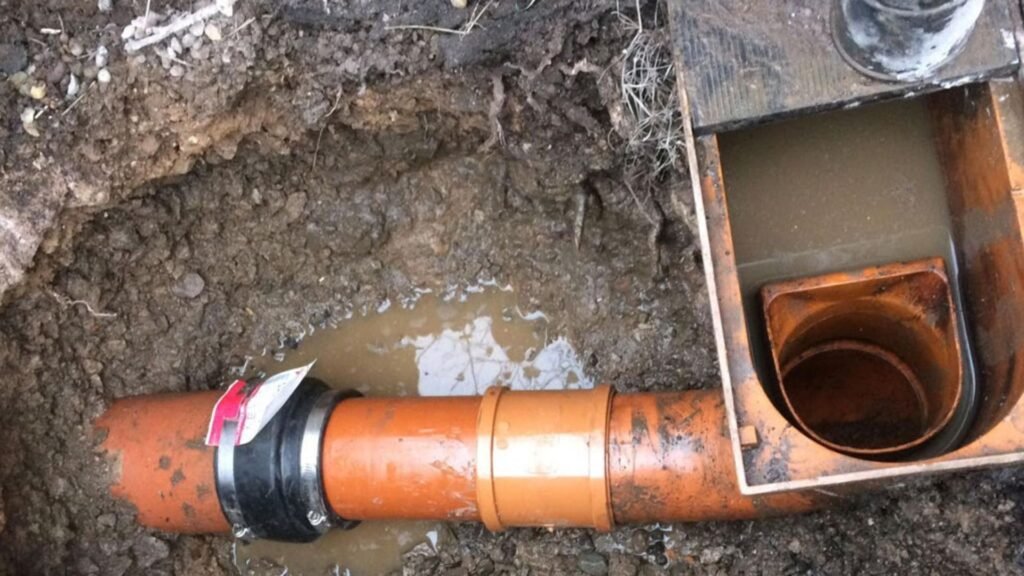Welcome to your ultimate guide to finding the best drain cleaner in New Zealand! We’ve all been there – standing over a sink or shower, frustrated as water drains slower and slower, or worse, doesn’t drain at all. Clogged drains can disrupt your day-to-day life, leading to unpleasant odors and, if left untreated, even more serious plumbing problems. That’s why it’s crucial to choose the right drain cleaner to tackle the issue effectively. In this post, we’ll walk you through the top drain cleaners available in New Zealand, comparing their pros and cons to help you make the best decision for your home or business. Whether you’re dealing with a stubborn clog or looking for an eco-friendly solution, this guide has you covered!
The best drain cleaner in New Zealand depends on your specific needs. For powerful, fast-acting solutions, Mr. Muscle Drain Gel and Drano Max Gel are top choices for tackling tough clogs. If you’re looking for an eco-friendly option, EcoWorks Drain Cleaner offers a natural, enzyme-based formula that’s safe for pipes and the environment. For regular maintenance and preventing future blockages, consider using Klear Drain Natural Cleaner, which is gentle yet effective. Choose a drain cleaner based on the severity of the clog and your preference for chemical or natural ingredients.
Table of Contents
How To Choose The Best Drain Cleaner
Selecting the right drain cleaner can make the difference between successfully unclogging your pipes or causing further damage. With so many options on the market, it’s crucial to understand the various types of drain cleaners, how they work, and which one is best suited to your situation. Let’s explore the key factors to consider when choosing the best drain cleaner for your home.
Types of Drain Cleaners
There are three main types of drain cleaners available: chemical-based, enzyme-based, and homemade solutions. Each type has its pros and cons, and the right choice will depend on the specific problem you’re facing.
Chemical-based Drain Cleaners
Chemical-based cleaners are often the go-to option for homeowners because they work fast and can dissolve tough clogs like hair, grease, and food debris. These cleaners usually contain ingredients like sulfuric acid, sodium hydroxide (lye), or bleach, which create a chemical reaction that breaks down organic materials in the clog. They are highly effective for stubborn blockages and are particularly useful in kitchen or bathroom sinks.
However, these powerful chemicals come with potential downsides. Prolonged use of chemical cleaners can corrode your pipes, especially if they are older or made of metal. Chemical-based cleaners can also be harmful to the environment, as they may release toxic substances into the water system. Additionally, improper use can cause dangerous chemical reactions, particularly if mixed with other household cleaners. Because of their potency, it’s essential to use these products as directed and only for severe clogs. For regular maintenance, consider a gentler option.
Enzyme-based Drain Cleaners
If you’re looking for a more eco-friendly solution, enzyme-based cleaners might be your best bet. These cleaners use natural bacteria and enzymes to break down organic matter in your pipes, such as food particles, hair, and grease. While enzyme-based cleaners are slower to work compared to their chemical counterparts, they are much safer for your pipes and the environment. They are also less likely to cause damage to septic systems and are safe for frequent use as a preventative measure.
Enzyme-based drain cleaners are ideal for maintaining clear drains and preventing future clogs. They work best on organic material, so if the clog is caused by something inorganic, like plastic or non-biodegradable debris, these cleaners may not be as effective. For those who prefer a natural approach to home care, enzyme-based cleaners are an excellent option, though they may require more patience.
Homemade Solutions
Many homeowners prefer to try homemade solutions before resorting to commercial drain cleaners. The most common natural method is using a combination of baking soda and vinegar. This method works by creating a chemical reaction that can break down minor clogs caused by grease or soap buildup. To use this method, simply pour a cup of baking soda down the drain, followed by a cup of vinegar. After allowing the mixture to sit for about 30 minutes, flush the drain with hot water.
Homemade solutions are generally safe for your pipes and the environment, but they are not always effective for more severe or deep-rooted clogs. If you’re dealing with a significant blockage, you may need to turn to a stronger chemical or enzyme-based cleaner. However, for light maintenance and minor clogs, homemade solutions are a great, cost-effective option.
Consider the Type of Clog
The type of clog you’re dealing with should heavily influence your choice of cleaner. Different types of clogs respond better to certain methods, so identifying the cause of the blockage is key.
Hair Clogs
Hair is one of the most common causes of clogs in bathroom sinks and showers. Chemical-based cleaners are often effective at dissolving hair, but enzyme-based cleaners can also work well if given enough time. For severe hair clogs, a drain snake or manual removal may be necessary before using a cleaner.
Grease Build-up
Grease clogs are particularly common in kitchen sinks. Chemical-based cleaners can quickly dissolve grease, but enzyme-based cleaners offer a safer, long-term solution by breaking down organic matter over time. If you’re dealing with repeated grease clogs, enzyme-based cleaners can be used regularly to prevent buildup.
Soap and Other Debris
Clogs caused by soap scum, food particles, or other debris can usually be handled by both chemical and enzyme-based cleaners. Homemade solutions like baking soda and vinegar can also be effective for lighter clogs, particularly if used regularly as part of a maintenance routine.
By understanding the source of your clog, you can choose a drain cleaner that is most likely to be effective without causing unnecessary damage to your pipes.
Safety Considerations
When using any type of drain cleaner, safety should be a top priority. Many commercial cleaners contain harsh chemicals that can be dangerous if not handled correctly.
Read Labels Carefully
Always follow the instructions provided on the product label. This includes information on how much cleaner to use, how long to leave it in the drain, and how to safely flush the pipes afterward. Using too much product or leaving it in the drain for too long can cause damage.
Use Protective Gear
Wear gloves and safety goggles when using chemical-based cleaners, as they can cause burns or eye irritation. Make sure the area is well-ventilated to avoid inhaling fumes, and keep children and pets away from the area while the cleaner is in use.
Avoid Mixing Products
Never mix different types of drain cleaners, especially chemical-based ones. This can lead to dangerous reactions, such as the release of toxic gases. If one cleaner doesn’t work, flush the drain thoroughly before trying a different type.
Choosing the right drain cleaner involves understanding the nature of the clog, evaluating the pros and cons of each type of cleaner, and following safety precautions. Whether you opt for a fast-acting chemical solution, a gentle enzyme-based cleaner, or a homemade remedy, the key is to make an informed decision that protects both your plumbing and the environment.

Top 5 Best Drain Cleaners In New Zealand
When it comes to maintaining clean and functional drains, choosing the right cleaner can make a significant difference. New Zealanders have access to a wide range of drain cleaning products, each catering to different needs, whether it be a stubborn clog or regular maintenance. Below is a breakdown of the top five drain cleaners available in New Zealand, highlighting their strengths, weaknesses, and ideal uses.
Mr. Muscle Drain Gel
Overview: Mr. Muscle Drain Gel is one of the most widely recognized drain cleaners in New Zealand, known for its strong, fast-acting formula. It’s readily available in most supermarkets and hardware stores across the country. What makes it so popular is its ability to cut through tough blockages quickly, especially hair and soap scum, which are common culprits in bathroom sinks and showers.
Pros:
- Extremely powerful against hair clogs and soap build-up.
- Fast-acting formula that delivers results in minutes.
- Widely available in both large and small retailers, making it convenient to purchase.
Cons:
- Contains harsh chemicals that can damage older pipes if used frequently.
- Not eco-friendly, which can be a concern for households focused on sustainability.
Ideal for: Stubborn clogs in bathroom sinks, showers, and bathtubs, where hair and soap scum are common issues.
EcoWorks Drain Cleaner
Overview: EcoWorks Drain Cleaner stands out for its eco-friendly, enzyme-based formula, making it a top choice for environmentally-conscious households. Instead of relying on harsh chemicals, EcoWorks uses enzymes to break down organic matter, making it safe for septic systems and the environment.
Pros:
- Safe for all types of pipes and septic systems.
- Environmentally friendly formula that doesn’t release harmful chemicals.
- Ideal for maintaining clean drains regularly without damaging plumbing.
Cons:
- Slower-acting than chemical-based cleaners, meaning it may take longer to see results.
- In cases of severe clogs, multiple applications may be necessary.
Ideal for: Regular maintenance and addressing smaller blockages, especially in homes with septic systems or eco-conscious values.
Drano Max Gel
Overview: Drano Max Gel is a heavy-duty chemical-based cleaner known for tackling tough clogs quickly. It’s a go-to product for many households in New Zealand when faced with kitchen grease build-up or hair clogs in bathrooms. Its thick gel formula cuts through standing water to attack clogs directly, making it a favorite for emergency unclogging.
Pros:
- Fast-acting and effective at removing even the most stubborn clogs.
- Works well on grease, making it particularly useful for kitchen drains.
- A trusted name with a long-standing reputation for reliable results.
Cons:
- Not safe for use in septic systems due to its harsh chemical ingredients.
- Can be corrosive over time, potentially causing damage to older pipes with frequent use.
Ideal for: Emergency unclogging in kitchens and bathrooms, especially when grease and hair are the primary causes of blockages.
Klear Drain Natural Cleaner
Overview: Klear Drain Natural Cleaner is an all-natural solution that’s safe for families, pets, and the environment. It uses natural ingredients to clean and maintain your drains without the use of toxic chemicals, making it a gentle yet effective choice for households looking to avoid harsh substances. Although slower to act, it offers a non-toxic approach to drain cleaning.
Pros:
- Non-toxic and safe to use around children and pets.
- Gentle on all plumbing systems, including older pipes.
- Environmentally friendly, aligning with sustainable living practices.
Cons:
- More expensive compared to traditional chemical-based drain cleaners.
- Slower to work, so it may not be the best option for urgent clogs.
Ideal for: Eco-conscious households that prioritize safety and sustainability, particularly for regular maintenance rather than emergency situations.
Liquid-Plumr Pro Strength
Overview: Liquid-Plumr Pro Strength is a strong, fast-acting cleaner designed for the toughest clogs. It’s a popular choice for homeowners who need a quick fix for heavily used drains, such as those in kitchens and bathrooms. Its powerful formula works quickly, dissolving even the most resilient blockages.
Pros:
- Fast-acting, delivering results within minutes for tough blockages.
- Affordable and widely available, making it an accessible option for most households.
- Works well on tough blockages caused by hair, grease, and food debris.
Cons:
- Can be harsh on older plumbing systems, potentially causing long-term damage with frequent use.
- Not eco-friendly, as it contains strong chemicals that may not align with sustainable living practices.
Ideal for: Quick fixes in heavily used drains, especially those prone to grease, food particles, or frequent hair clogs, such as in kitchens and bathrooms.
The best drain cleaner for your needs depends on the type of clog, your plumbing system, and your personal values regarding eco-friendliness. Whether you need a fast-acting chemical solution like Mr. Muscle Drain Gel or a gentler, more sustainable option like Klear Drain Natural Cleaner, New Zealand offers a wide array of choices to suit every household.

Pros And Cons Of Chemical Vs. Enzyme-Based Drain Cleaners
When it comes to clearing clogged drains, homeowners often face a choice between using chemical-based cleaners or opting for enzyme-based alternatives. Each type of cleaner comes with its own set of advantages and disadvantages. Understanding these differences is essential to make an informed decision that aligns with your needs and values.
Chemical Cleaners: The Quick Fix with a Cost
Chemical drain cleaners are often the go-to solution for people dealing with stubborn blockages. These cleaners are typically composed of strong chemicals, like sodium hydroxide or sulfuric acid, which break down tough clogs with ease.
Pros of Chemical Cleaners:
- Fast-Acting: One of the biggest advantages of chemical cleaners is their speed. These products are designed to dissolve hair, grease, and other debris within minutes, making them ideal for emergency situations where water is backing up or draining slowly.
- Effective on Tough Clogs: Chemical cleaners can break down even the most stubborn blockages, including those caused by soap scum, hair, or food waste. This makes them highly effective for dealing with severe clogs that other methods might struggle to clear.
- Widely Available: You can find chemical drain cleaners at almost any hardware store or supermarket. Their widespread availability makes them a convenient option for many homeowners who need a quick fix.
Cons of Chemical Cleaners:
- Harsh on Pipes: While chemical cleaners are effective, they can be corrosive. Over time, frequent use may weaken your pipes, leading to potential leaks or even pipe failure. This is especially true for older plumbing systems.
- Toxic Fumes: The chemicals in these cleaners can emit harmful fumes. If you’re using them in a poorly ventilated area, these fumes can be dangerous to your health, causing irritation to your eyes, lungs, and skin.
- Bad for the Environment: Chemical cleaners don’t just affect your pipes—they can also harm the environment. The chemicals can seep into water supplies, potentially impacting wildlife and ecosystems.
- Not Suitable for All Types of Clogs: Despite their strength, chemical cleaners are not a universal solution. They may not be effective on clogs caused by non-organic materials, and they can actually exacerbate issues in some cases, such as damaging delicate plumbing systems.
Enzyme-Based Cleaners: A Gentle but Effective Alternative
Enzyme-based drain cleaners work differently from their chemical counterparts. Instead of breaking down clogs with harsh chemicals, they rely on natural enzymes to digest organic material. These cleaners are best used as part of routine maintenance rather than an emergency fix.
Pros of Enzyme-Based Cleaners:
- Eco-Friendly: Enzyme-based cleaners are an environmentally friendly choice. Since they use natural enzymes and bacteria to break down clogs, they don’t introduce harmful chemicals into the environment, making them a more sustainable option.
- Safe for Pipes and Septic Tanks: Unlike chemical cleaners, enzyme-based solutions are gentle on your plumbing. They won’t corrode pipes or damage septic systems, making them a safe choice for long-term use. This is especially beneficial for homeowners with older or fragile plumbing systems.
- Ideal for Routine Maintenance: While enzyme cleaners may not be as fast-acting as chemical cleaners, they excel at preventing clogs from forming in the first place. Regular use can keep your drains flowing freely by breaking down organic materials gradually.
Cons of Enzyme-Based Cleaners:
- Slower to Work: One of the main drawbacks of enzyme-based cleaners is their slower pace. If you’re dealing with a severe clog, enzyme-based solutions may not be effective enough in the short term. They work best when given time to break down debris gradually, so they’re better suited for maintenance than for emergency situations.
- Not as Effective on Severe Blockages: For serious clogs, particularly those caused by non-organic materials or grease buildup, enzyme cleaners may not be powerful enough to provide a quick solution. In these cases, you may need a stronger option, such as a chemical cleaner or mechanical intervention.
Choosing the Right Cleaner for Your Needs
Deciding between a chemical or enzyme-based drain cleaner depends largely on your specific situation. If you’re dealing with a severe clog and need immediate results, a chemical cleaner may be the right choice, despite its environmental and health drawbacks. On the other hand, if you’re looking for a safer, eco-friendly option that can help maintain your drains over time, enzyme-based cleaners offer a more sustainable solution.
For those focused on long-term plumbing health and environmental responsibility, enzyme-based cleaners are often the better choice. However, it’s important to weigh the trade-offs in terms of speed and effectiveness, especially for more severe blockages. In some cases, a combination of the two may even be appropriate—using an enzyme cleaner for routine maintenance and reserving chemical options for more urgent situations.
By understanding the pros and cons of both chemical and enzyme-based cleaners, you can make a more informed decision that aligns with your needs, ensuring that your drains remain clear and your plumbing system stays intact.

How To Safely Use A Drain Cleaner
When faced with a slow or partially clogged drain, a chemical drain cleaner can be an effective solution. However, it’s crucial to use these products with care. Drain cleaners often contain strong chemicals that can be hazardous if mishandled. Here’s a step-by-step guide to ensure you can unclog your drain without compromising safety:
Step-by-Step Guide to Safely Using Drain Cleaners
1. Clear the Area and Ensure Proper Ventilation
Before you even open the bottle, make sure the area around the drain is cleared of any items, including personal products, towels, or cleaning tools. Proper ventilation is key since drain cleaners release fumes that can be irritating or harmful if inhaled. Open nearby windows or turn on a fan to circulate air and reduce the concentration of fumes in the room.
2. Wear Protective Gear
Safety is always a priority when handling chemical products. Gloves and goggles are essential protective gear when using drain cleaners. They protect your skin and eyes from splashes, which can cause burns or serious irritation. Some cleaners may also emit fumes that can cause respiratory discomfort, so wearing a mask could be beneficial in more enclosed spaces.
3. Read the Product Instructions Carefully
Every drain cleaner comes with specific usage guidelines, and following them ensures the product works effectively and safely. Each product may have different recommended application times, quantities, and other specific directions based on the type of clog or drain. Skipping this step could result in ineffective treatment or even damage to your plumbing system.
4. Avoid Mixing Drain Cleaners
Mixing different types of drain cleaners can be extremely dangerous. Certain chemicals can react violently when combined, potentially producing toxic fumes or causing splashes that could result in severe burns or other injuries. Always stick to one product and don’t combine it with others, even if you think it might speed up the process.
Dos and Don’ts of Using Drain Cleaners
- Do: Rinse the Drain Thoroughly After Use
Once the cleaner has done its job, it’s important to flush the drain with plenty of water. This helps wash away any residual chemicals left behind, preventing further damage to your pipes or the environment. Rinsing the drain with hot water can also help dissolve any remaining grease or grime that might be lingering in your pipes.
- Don’t: Use on Completely Blocked Drains or Follow Up with a Plunger
Chemical drain cleaners are designed to work best on slow drains or partial blockages. If the drain is completely blocked, using a chemical cleaner can cause the product to sit in one spot, damaging pipes without resolving the issue. Additionally, never use a plunger immediately after applying a chemical drain cleaner. The pressure from the plunger can cause the liquid to splash back up, potentially leading to serious chemical burns or exposure to harmful fumes.
Final Thoughts
Drain cleaners can be a fast and effective way to clear minor clogs, but using them with caution is essential for your safety. Following the steps outlined above will help ensure that you can resolve your clog issues without risking injury or causing damage to your plumbing system.

DIY Drain Cleaning Solutions
When dealing with a clogged drain, the first instinct is often to reach for a commercial drain cleaner. However, there are plenty of effective homemade solutions that can handle minor blockages without the need for harsh chemicals. DIY drain cleaning methods are not only affordable but also eco-friendly, making them ideal for small clogs or routine maintenance. But how do you know when a DIY solution will do the trick, and when is it time to call in the pros or reach for something stronger? Let’s break down some popular homemade remedies and the situations in which they work best.
When to Opt for a Homemade Solution
DIY drain cleaning solutions are perfect for tackling small clogs, such as those caused by soap scum, hair, or minor grease buildup. They’re also ideal for regular maintenance, helping to prevent bigger issues down the line. If your sink or shower is draining slowly but hasn’t come to a complete standstill, a homemade remedy might be just what you need. These solutions are less harsh on your pipes and plumbing system, especially when compared to chemical-based cleaners, which can cause corrosion over time. So, if the issue seems minor, it’s worth giving one of these tried-and-true methods a shot before resorting to more aggressive measures.
Popular Homemade Solutions
1. Baking Soda and Vinegar: This dynamic duo is a well-known remedy for small clogs. To use it effectively, start by pouring a pot of boiling water down the drain. Then, add about a cup of baking soda, followed by a mixture of equal parts vinegar and hot water. The fizzing reaction between the baking soda and vinegar helps break down the debris that’s causing the blockage. Let it sit for 15-20 minutes before flushing the drain with more boiling water. This method works well on small clogs caused by organic material like hair, soap scum, or mild grease buildup. It’s a natural and non-toxic solution that’s also great for regular drain maintenance.
2. Boiling Water: Sometimes, the simplest solution is the most effective. If your kitchen sink is draining slowly due to grease buildup, pouring boiling water down the drain can help melt and flush away the grease. This method is particularly useful for kitchen drains that handle a lot of greasy residue from cooking. However, boiling water is less effective against hair or larger debris and should be used as a preventative measure to avoid grease blockages rather than a fix for more significant clogs.
3. Wire Hanger Method: For physical obstructions like hair or other debris that has become tangled near the drain’s surface, the wire hanger method is a go-to solution. Straighten out a wire hanger, leaving a small hook on one end. Carefully insert the hanger into the drain and use it to pull out any visible blockages. This is particularly effective in bathroom drains where hair buildup is often the main culprit behind clogs. Just be sure to avoid pushing the debris further down the drain, which could worsen the blockage.
When DIY Doesn’t Work
While these DIY methods can be highly effective for small or routine clogs, they won’t always be enough. If you’ve tried one or more of these solutions and the drain is still slow, or the clog comes back quickly, it’s a sign that the problem might be deeper in the plumbing system. In such cases, you may need a stronger commercial drain cleaner or professional intervention to fully clear the blockage. Additionally, if you notice foul odors, gurgling sounds, or water backing up from the drain, it’s time to consider calling a plumber. These signs often indicate more significant issues like a blocked sewer line or a deeper clog that can’t be reached with DIY methods.
By knowing when to use DIY solutions and recognizing when they’ve reached their limits, you can maintain your drains effectively without unnecessary hassle or damage to your plumbing system.

How To Prevent Future Clogs
One of the best ways to avoid the hassle and expense of dealing with clogged drains is through prevention. With a few simple habits and regular maintenance, you can keep your drains running smoothly for years. Let’s explore some effective strategies to prevent future clogs and ensure your plumbing system stays in top shape.
Regular Maintenance Tips
1. Use a Drain Strainer: One of the simplest yet most effective tools for preventing clogs is a drain strainer. Whether in the shower or kitchen sink, these strainers trap hair, food particles, and other debris before they can enter your pipes. Regularly cleaning out the strainer ensures that buildup doesn’t become an issue, keeping water flowing freely.
2. Avoid Pouring Grease Down the Sink: Grease is a notorious drain clogger. While it may go down the drain in liquid form, grease solidifies as it cools, adhering to the insides of your pipes and eventually causing blockages. Instead of pouring grease down the sink, pour it into a container, let it solidify, and then dispose of it in the trash. This simple step can save you a world of trouble in the long run.
3. Run Hot Water After Each Use: A quick, easy way to prevent buildup in your kitchen sink is to run hot water for a few seconds after using it. This helps flush away any lingering oils, soap residue, or small particles that may otherwise settle and accumulate. It’s a small habit, but when done regularly, it can make a big difference.
4. Use Enzyme-Based Cleaners Periodically: Many people rely on chemical drain cleaners to break up clogs, but these can be harsh on your pipes over time. Instead, opt for enzyme-based cleaners, which use natural enzymes to break down organic material like hair and food particles. Using them once a month can help maintain clear drains without the risk of damage to your plumbing.
DIY Prevention Hacks
For those who prefer more natural and budget-friendly solutions, there are several DIY methods to keep drains clean. One of the best and easiest is the monthly baking soda flush. Here’s how it works:
- Baking Soda and Vinegar: Once a month, pour half a cup of baking soda down your drain, followed by half a cup of white vinegar. Let the mixture sit for about 10-15 minutes while it fizzes and works its magic. Afterward, flush the drain with hot water. This combination helps break down minor blockages, reduces odor, and keeps your pipes fresh without the need for harsh chemicals.
By incorporating these simple practices into your routine, you’ll not only prevent future clogs but also extend the lifespan of your plumbing system. Taking proactive steps now means avoiding costly repairs later on, keeping your home running smoothly with minimal effort.

When To Call A Professional Plumber
Sometimes, even with the best efforts and reliable drain cleaners, certain plumbing issues require the attention of a professional. While minor clogs can often be addressed with DIY solutions, knowing when to bring in an expert can prevent the problem from escalating. Here are some clear signs that it’s time to call a professional plumber:
Signs It’s Time for a Professional
1. If the drain cleaner hasn’t worked after several attempts
If you’ve tried using a drain cleaner multiple times and the clog remains, it could be a sign that the blockage is more severe than you initially thought. Repeated attempts to clear the drain using chemical or natural cleaners might offer temporary relief but don’t fully resolve the underlying issue. In such cases, continuing DIY efforts can lead to damage to your pipes, especially if harsh chemicals are involved. A plumber has specialized tools like drain snakes and hydro jetting equipment that can tackle deeper or more stubborn clogs effectively.
2. Gurgling sounds or foul odors from the drain
Hearing unusual gurgling noises or detecting foul smells coming from your drains is an indicator of deeper plumbing issues. The gurgling could be caused by air trapped in the pipes, which signals a potential blockage somewhere in the system. Meanwhile, foul odors may indicate the presence of trapped debris or waste, which can accumulate and rot in your pipes. These symptoms could also hint at issues in your venting system or septic tank. In these cases, a professional plumber can perform a thorough inspection to diagnose and fix the root cause.
3. Multiple clogged drains in the home
When several drains in your house are clogged simultaneously, it’s a red flag that there might be a larger issue at play, such as a blockage in the main sewer line. This problem can affect not only the drains in your home but potentially cause sewage backups and flooding, which pose a serious health risk. A blocked main sewer line is not something you can handle with a plunger or over-the-counter cleaner. A professional plumber will have the right tools and expertise to clear the blockage safely and ensure your entire plumbing system is functioning properly.
The Risks of Waiting Too Long
One of the biggest mistakes homeowners make is delaying the decision to call a professional, hoping that the issue will resolve itself or be fixed with another round of DIY solutions. However, plumbing issues rarely improve on their own. A small blockage can quickly turn into a much bigger problem if ignored. For instance, a minor clog in your sink or shower drain can cause increased pressure in your pipes, which may lead to leaks or bursts, especially if your plumbing is older or made from materials prone to corrosion.
Waiting too long to address plumbing issues can also result in more costly repairs. A small blockage might have been easily fixed by a plumber in the early stages, but by the time it causes significant damage, you could be facing more expensive repairs, such as pipe replacements or even structural damage to your home. Additionally, ignoring issues with your main sewer line can lead to sewage backups, which not only cause damage but also pose a health risk to your household.
In summary, if your drains are persistently clogged, making strange sounds, emitting foul odors, or affecting multiple areas of your home, it’s time to call in a professional plumber. Addressing the problem sooner rather than later can save you time, money, and stress, and ensure your plumbing system is operating efficiently.

FAQs: About Best Drain Cleaner NZ
What is the best drain cleaner for clogged sinks in New Zealand?
The best drain cleaner for clogged sinks in New Zealand depends on the type of clog. For tough clogs caused by hair or grease, products like Mr. Muscle Drain Gel and Drano Max Gel are highly effective. For eco-friendly options, EcoWorks Drain Cleaner is a great choice for regular maintenance and smaller blockages.
Can chemical drain cleaners damage my pipes?
Yes, some chemical drain cleaners can damage pipes, especially if used frequently or left in the pipes too long. Chemical cleaners, especially those containing harsh ingredients, may erode older or weaker pipes over time. It’s important to follow instructions carefully and consider enzyme-based alternatives for routine maintenance.
Are enzyme-based drain cleaners effective for all types of clogs?
Enzyme-based drain cleaners are effective for preventing clogs and clearing small blockages caused by organic material like hair or food particles. However, they may not work as quickly or effectively on severe blockages or grease build-up, where chemical drain cleaners might be more suitable.
How often should I use a drain cleaner to prevent clogs?
For prevention, it’s recommended to use an enzyme-based cleaner once a month to keep drains clear of buildup. For more intense cleaners like chemical solutions, only use them when necessary, such as when you notice slower drainage, to avoid damaging your pipes.
Is it safe to use drain cleaners in septic systems?
Not all drain cleaners are safe for septic systems. Enzyme-based cleaners like EcoWorks Drain Cleaner are typically septic-safe, as they use natural bacteria to break down clogs. Chemical cleaners, on the other hand, can disrupt the bacterial balance in septic tanks, so check the label for septic system safety.
Can I use a plunger after applying a chemical drain cleaner?
It’s not recommended to use a plunger immediately after applying a chemical drain cleaner. The risk of splashing hazardous chemicals can lead to burns or exposure to harmful fumes. Wait until the cleaner has had time to work, then flush the drain with water before attempting to use a plunger.
What natural alternatives can I use for unclogging drains?
You can use natural alternatives like a mixture of baking soda and vinegar followed by hot water to clear minor blockages. Boiling water can also help dissolve grease clogs in kitchen sinks. These methods are effective for small blockages and routine maintenance but may not work on severe clogs.
How do I know when it’s time to call a professional plumber?
If you’ve tried a drain cleaner multiple times with no success or if multiple drains in your home are clogged, it might be time to call a professional plumber. Other signs include gurgling sounds, foul odors, or water backing up in different fixtures, which can indicate a more significant problem with your plumbing system.
What safety precautions should I take when using a chemical drain cleaner?
When using a chemical drain cleaner, wear protective gloves and goggles to avoid skin and eye contact. Ensure the area is well-ventilated, and never mix different cleaners, as this can create dangerous chemical reactions. Always follow the product’s instructions carefully.
Can drain cleaners be used in both kitchen and bathroom drains?
Yes, most drain cleaners can be used in both kitchen and bathroom drains, but it’s essential to choose the right product for the type of clog. Kitchen drains often face grease and food particle buildup, while bathroom drains are more prone to hair and soap clogs. Some products are specifically formulated to tackle one or the other.
Conclusion
In conclusion, finding the best solution for your drain issues comes down to selecting the right cleaner based on your specific needs while maintaining a balance between effectiveness and safety. Whether you choose a powerful chemical cleaner, a gentle enzyme-based option, or a DIY approach, it’s crucial to prioritize safety and ensure you’re not causing any damage to your plumbing. Regular maintenance can go a long way in preventing future clogs and keeping your drains flowing smoothly. Consider trying one of the recommended products tailored to your needs, and don’t hesitate to call a professional plumber if you encounter persistent issues that require expert attention.
About the Author:
Mike Veail is a recognized digital marketing expert with over 6 years of experience in helping tradespeople and small businesses thrive online. A former quantity surveyor, Mike combines deep industry knowledge with hands-on expertise in SEO and Google Ads. His marketing strategies are tailored to the specific needs of the trades sector, helping businesses increase visibility and generate more leads through proven, ethical methods.
Mike has successfully partnered with numerous companies, establishing a track record of delivering measurable results. His work has been featured across various platforms that showcase his expertise in lead generation and online marketing for the trades sector.
Learn more about Mike's experience and services at https://theleadguy.online or follow him on social media:
